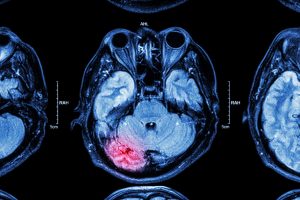Failure to Diagnose Traumatic Brain Injury and the Consequences
 Traumatic brain injury is something that can happen to anyone whether from a slip and fall, a motor vehicle accident or an act of violence. Misdiagnosis, failure to diagnose, and/or a delayed diagnosis occurs when a physician examines a patient and fails to recognize the disease or condition for what it is, or for its severity. Unfortunately, even a mild traumatic brain injury can have serious consequences it is not diagnosed and treated in a timely manner.
Traumatic brain injury is something that can happen to anyone whether from a slip and fall, a motor vehicle accident or an act of violence. Misdiagnosis, failure to diagnose, and/or a delayed diagnosis occurs when a physician examines a patient and fails to recognize the disease or condition for what it is, or for its severity. Unfortunately, even a mild traumatic brain injury can have serious consequences it is not diagnosed and treated in a timely manner.
The New Jersey Commission on Brain Injury Research (NJCBIR) reports that about 175,000 NJ residents suffer from traumatic brain injury; approximately 12,000 new injuries occur each year that require inpatient or outpatient treatment. Motor vehicle accidents continue to be the leading cause of fatal traumatic brain injury.
One of the challenges of diagnosing mild traumatic brain injury, is that the symptoms do not always show up immediately following the incident. For the best long-term prognosis, catching and treating TBI early can make a significant impact in how the patient is able to recover from the injury. If an individual is injured in a car accident, and shows up to an emergency department with no head wounds but other injuries from the crash, the existence of the head injury may not be apparent initially.
What are the consequences of missed or delayed diagnosis?
A case study published in MOJ Clinical & Medical Case Reports, on the topic of missed diagnosis of a traumatic brain injury, chronicles the case of a woman who was seated in her vehicle when it was rear-ended by a 16-passenger van. She received her brain injury from the acceleration-deceleration, concussive, contusive and contrecoup-coup forces involved in the crash, according to the report. Despite her experiencing symptoms of TBI following the crash – which included anxiety, depression, personality changes, psychiatric disorders and vestibular dysfunction – she was not evaluated or treated for mild traumatic brain injury until 2016, which was 16 years after the accident occurred. In the case study’s discussion section, it postulates different options for preventing the missed diagnosis of traumatic brain injury and the importance of making sure that patients are treated as soon as possible. It also recommends that providers must overcome any knowledge deficiency about identifying traumatic brain injury.
When a TBI is not diagnosed immediately, there will be delays in treatment, which can have a negative impact on the patient’s recovery. But a missed diagnosis of a traumatic brain injury also makes proving your injury case more difficult. An experienced New Jersey medical malpractice lawyer from Eichen Crutchlow Zaslow will help you hold the physician or any other medical providers involved responsible for failure to diagnose a traumatic brain injury in a timely manner.
New Jersey medical malpractice attorneys at Eichen Crutchlow Zaslow, LLP will fight for compensation for you after you have been injured because of medical negligence. You are welcome to call us today at 732-777-0100 or use our contact form to schedule an initial, free consultation. We serve clients in Red Bank, Edison, Toms River, and throughout New Jersey.

Eichen Crutchlow Zaslow, LLP has purposely remained small in size, because it is important to us that we get to know our clients and their needs. Larger NJ injury firms may churn out case after case, but that’s not how we operate. Partners Barry Eichen, William Crutchlow, and Daryl Zaslow have created a firm with the resources to handle complex litigation, and a team that takes your case personally.
Find out more about Eichen Crutchlow Zaslow, LLP
